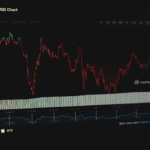Tokenization is a transformative process that involves converting real-world assets, ranging from real estate to fine art, into digital tokens on a blockchain. This approach promises increased liquidity, fractional ownership, and accessibility to assets that were out of reach for many investors.
Let’s understand the realm of tokenization and explore how it’s reshaping how we perceive and interact with assets in the digital age.
Unlocking Liquidity and Fractional Ownership
One of the primary advantages of tokenization is its ability to unlock liquidity in traditionally illiquid assets. By tokenizing real estate assets, property owners can divide them into smaller, more manageable units represented by digital tokens. This fractional ownership model enables investors to trade fractions of high-value assets seamlessly.
Tokenization enhances liquidity by enabling asset owners to tokenize their holdings and offer them to a global pool of investors through digital exchanges. This process eliminates many of the barriers associated with traditional asset transactions.
Enhancing Accessibility and Security
Tokenization also fosters greater accessibility to a diverse range of assets. By digitizing assets and leveraging blockchain technology, tokenization opens up investment opportunities beyond traditional markets, allowing individuals to invest in assets like art and collectibles. This democratization of investment not only broadens the investment landscape but also enables investors to diversify their portfolios more effectively.
If you want to learn more about tokenization in the digital asset space, consider connecting with Kenson Investments. Our team can guide you about fractional ownership and help you wisely invest your hard-earned money. You can reach out to us for more details.
Disclaimer: The content provided on this blog is for informational purposes only and should not be construed as financial advice. The information presented herein is based on personal opinions and experiences, and it may not be suitable for your individual financial situation. We strongly recommend consulting with a qualified financial advisor or professional before making financial decisions. Any actions you take based on the information from this blog are at your own risk.














